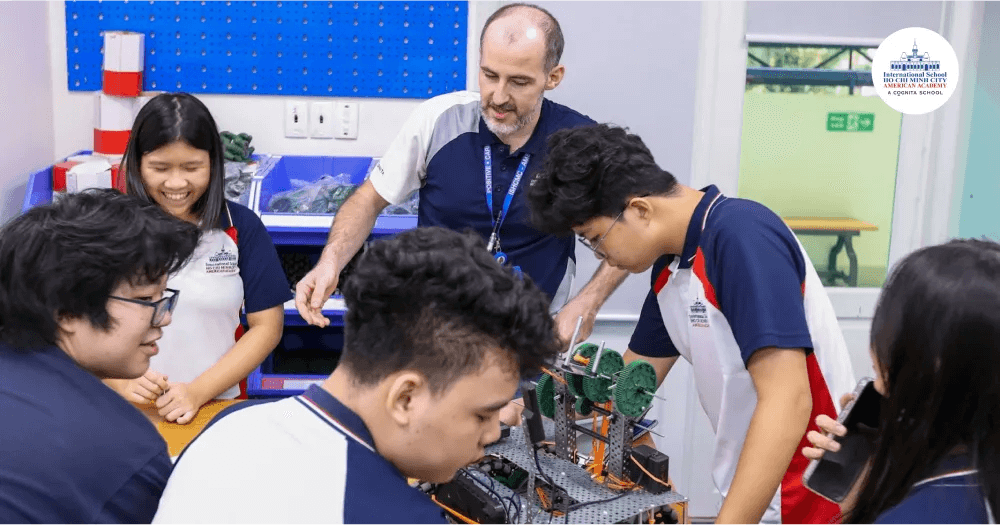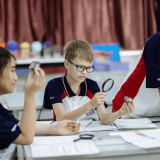High school students’ personal and academic growth depends on developing leadership qualities. These skills are vital for future career success and play a significant role in shaping well-rounded individuals.
This article delves into the importance of leadership skills for high school students. It presents 15 comprehensive strategies to help high school students gain valuable leadership experience, equipping them for future challenges and opportunities.
- Participate in student government or class council
- Take on a role as a club officer
- Engage as a tutor/mentor
- Initiate a club or publication
- Lead as captain of a sports team
- Join a volunteer program or campaign or coordinate a community event
- Seek mentorship and feedback from teachers/advisors
- Engage in leadership development workshops
- Apply leadership skills in real-world scenarios
Before delving into specific ways and activities to practice leadership skills for high school students, let’s review the significance of social skills in students in the following section.
The Importance of Developing Leadership Skills for High School Students
Leadership skills for high school students instill confidence, enable responsibility, and prepare students to navigate the rapid changes in our world, such as technological advancements and evolving geopolitical landscapes.
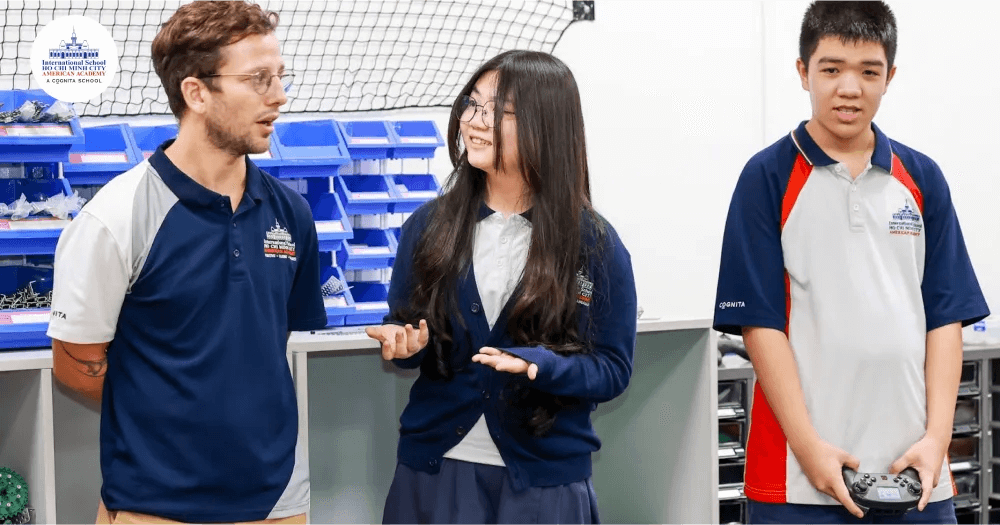
Schools can enhance student engagement, maturity, and independence by nurturing leadership qualities. High school students with strong leadership skills are better equipped to manage their lives, make sound decisions, and contribute positively to their communities.
Now, let’s explore 15 practical strategies for building leadership skills for high school students.
1. Participate in Student Government or Class Council
Engaging in student government or class council allows high school students to develop and demonstrate their leadership and organizational skills in a structured setting.
Participating in student government or class council gives students firsthand experience in decision-making, communication, and collaboration. They learn to advocate for their peers’ interests, navigate diverse perspectives, and implement initiatives to enhance the school community. Students will become accountable for representing the collective voice of their peers.
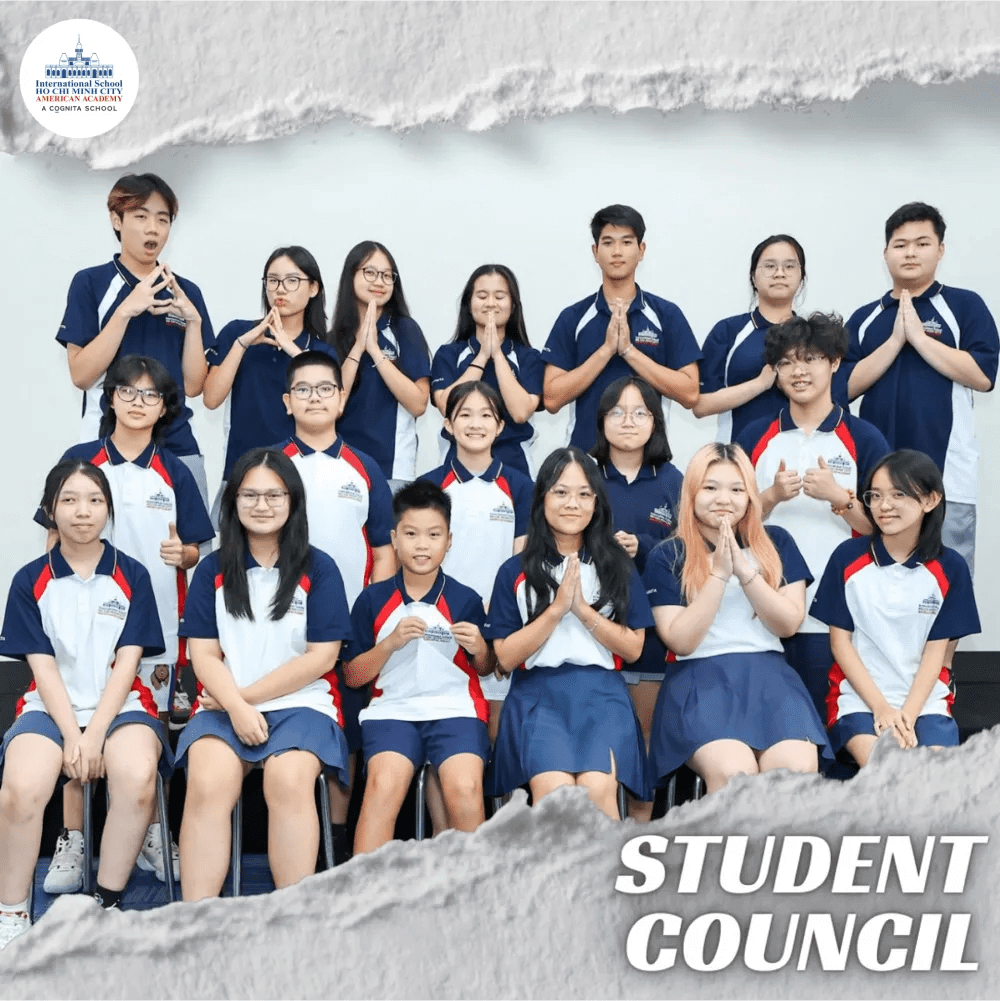
Furthermore, student government or class council involvement equips students with essential skills for future civic and leadership roles, offering hands-on experience in organizing, leading, and managing projects. These activities serve as leadership development laboratories, empowering students to harness their strengths, discover their passions, and contribute meaningfully to their communities.
2. Take on A Role as A Club Officer
Taking a position as a club officer presents high schoolers with an invaluable opportunity to develop and demonstrate leadership skills for high school students within a structured organizational setting.
Club officers must share the leadership spotlight with fellow officers and members, facilitating a collaborative environment where contributions are valued and acknowledged.
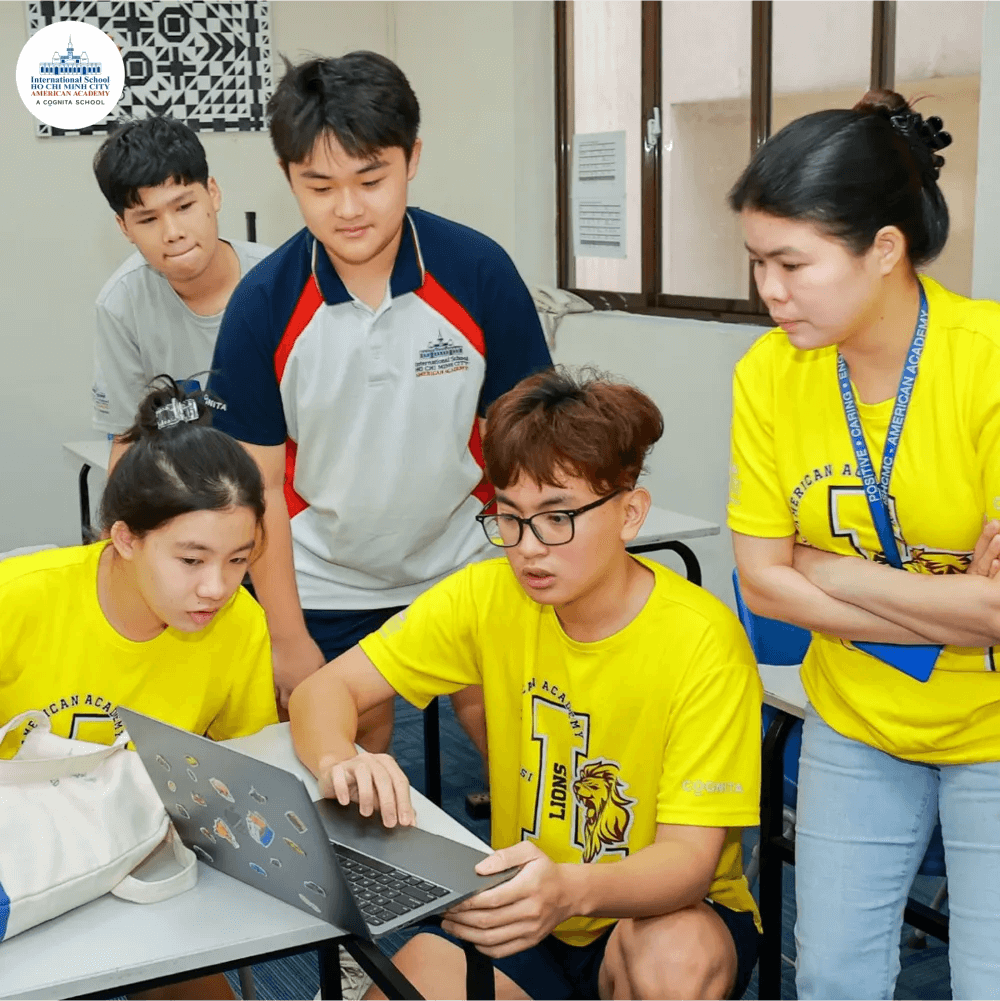
Effective leadership within a club or organization also entails open communication and information sharing. Officers encourage open communication among members and transparent information exchange to foster a culture of mutual respect and trust.
Additionally, addressing concerns or conflicts through constructive dialogue rather than gossip or negativity facilitates a positive organizational climate conducive to growth and development.
Moreover, ethical leadership encompasses integrity, fairness, and a commitment to the common good. Club officers are entrusted with upholding a code of conduct or ethics that guides members’ behavior and promotes a culture of respect and accountability.
3. Engage as A Tutor/mentor
Participating as a tutor or mentor gives high school students a unique avenue to hone their leadership abilities while positively impacting their peers. Effective counseling requires empathy, self-awareness, and genuine respect for individuals’ unique attributes and circumstances.
Tutoring or mentoring involves more than simply imparting knowledge; it necessitates understanding each student’s individuality and recognizing their unique strengths, challenges, and learning styles. Leaders in this role must respect their mentees’ autonomy and capabilities, refraining from imposing their values or expectations.
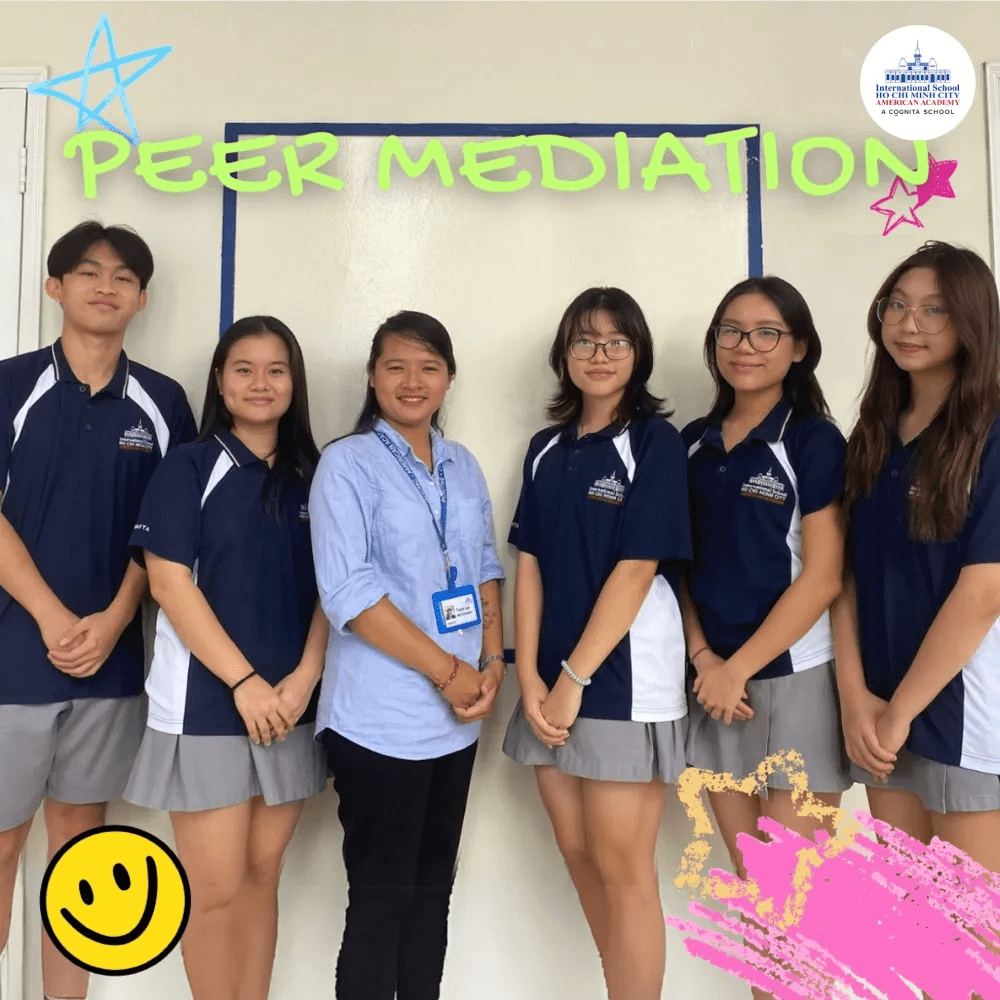
Furthermore, engaging as tutors or mentors boosts self-awareness in student leaders as they reflect on their strengths, weaknesses, and communication styles. This introspection enables them to provide more empathetic and effective support to their peers, building trust and rapport within the mentorship relationship.
Additionally, serving as tutors or mentors allows students to acquire credibility by consistently demonstrating honesty, integrity, and reliability. Student leaders gain the respect and trust of their peers through upholding honest and open communication. This positions them as reliable sources of advice and assistance.
4. Initiate a Club or Publication
High school students can significantly enhance their leadership abilities by taking the initiative to establish a club or publication focused on issues they are passionate about.
Initiating a club or publication enables students to showcase their dedication to specific causes and demonstrate their ability to organize, motivate, and mobilize their peers toward a common goal. It entails initiating a community service club, a publication focused on cultural awareness, or a group dedicated to environmental advocacy.
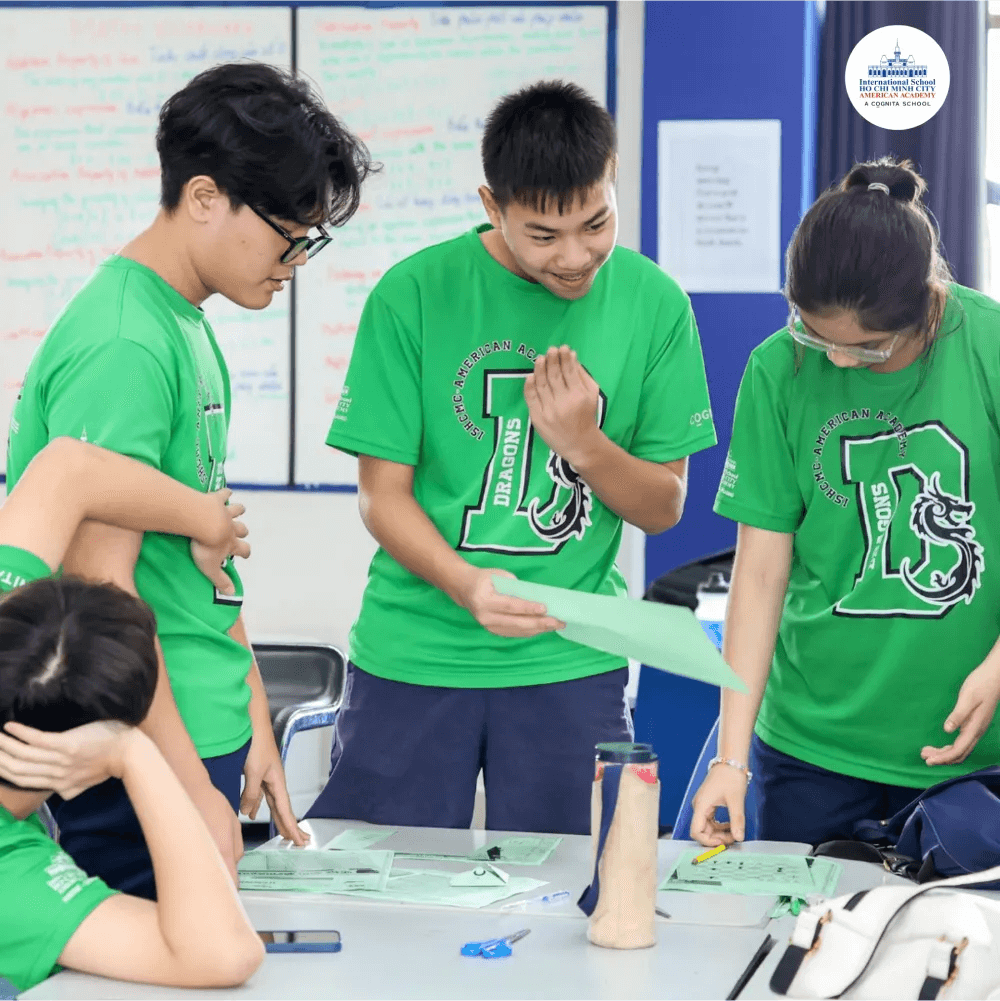
Establishing a club or publication also allows students to build their leadership brand by advocating for causes they care about and taking proactive steps to address societal or community issues.
Students demonstrate their leadership as they speak up, take action, and encourage others to become involved and change the world.
In addition, leading a club or publication develops important leadership competencies such as problem-solving, decision-making, and teamwork. Students learn to navigate challenges, delegate tasks, and encourage ownership and belonging among club members, boosting collaboration and empowerment.
5. Lead as Captain of A Sports Team
Becoming a high school sports team captain is a great way to improve leadership skills for high school students through enjoyable sports activities in an enjoyable setting.
After attending a sports event, engaging in a discussion about the importance of goals both in sports and life can provide valuable insights into the role of leadership in achieving objectives. Encouraging students to reflect on their life goals and brainstorm steps to progress toward them further solidifies their understanding of leadership and goal-setting.

Moreover, leading a sports team requires effective communication, decision-making, and conflict-resolution skills. Captains serve as role models, fostering a positive team dynamic and navigating challenges with grace and determination.
Prioritizing well-being is integral to ISHCMC – American Academy students’ educational journey. As part of Cognita’s commitment to holistic education, initiatives like the Global Be Well Day allow students to focus on their emotional, social, and physical health.
Through engagement in initiatives that support the Be Well Charter, students at ISHCMC – American Academy reaffirm the value of well-being and self-care in their personal and academic lives.
6. Join a Volunteer Program or Campaign or Coordinate a Community Event
Engaging in volunteer programs, campaigns, or coordinating community events helps students to contribute positively to society and acquire essential leadership skills for high school students through active involvement in initiatives that support various causes, such as aiding the homeless, environmental conservation, or social justice.
Moreover, organizing and leading these activities necessitates strategic planning, decision-making, and problem-solving – all fundamental aspects of leadership development.
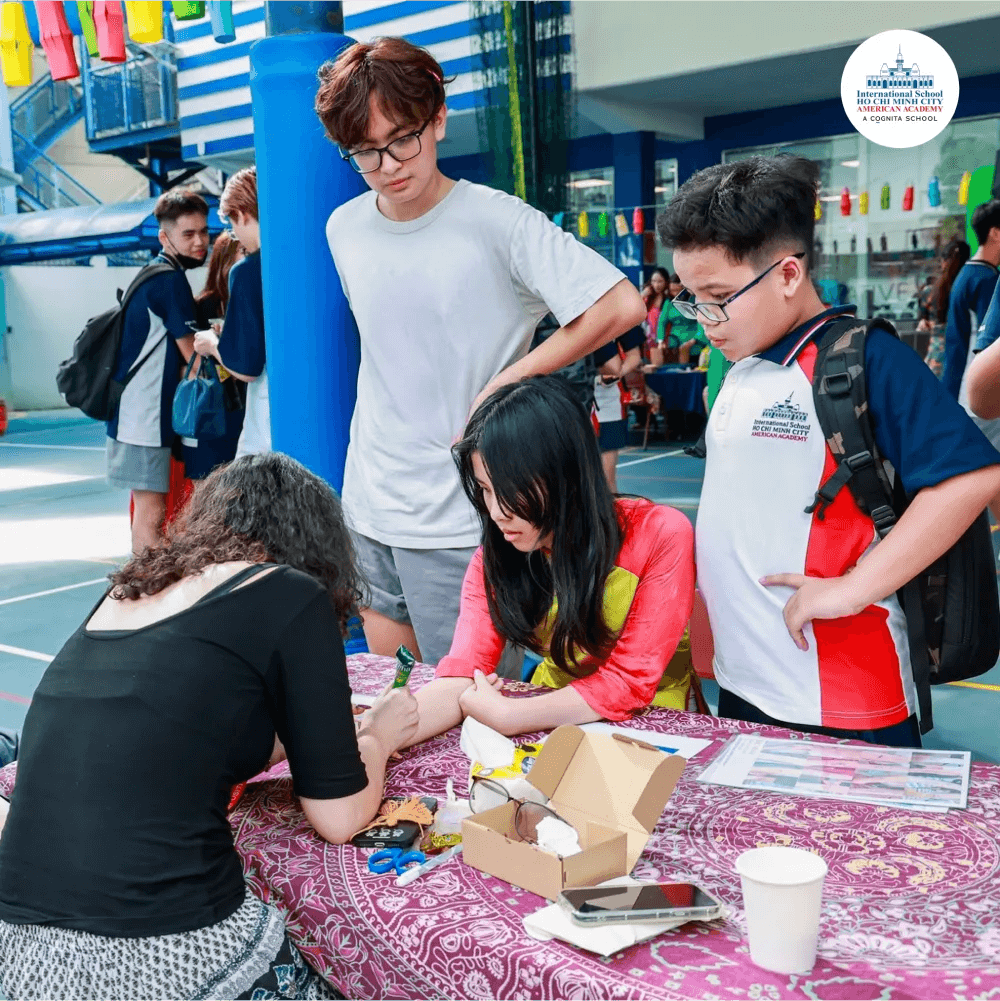
At ISHCMC – American Academy, high school students are nurtured in a diverse and supportive global community and encouraged to pursue leadership development alongside personal excellence and academic success. We provide an environment conducive to volunteerism, campaigns, and community engagement, which fosters collaboration across cultures and cultivates empathy and cooperation.
7. Seek Mentorship and Feedback from Teachers/ Advisors
Mentorship and advisor feedback can greatly benefit high school students by providing valuable guidance, support, and constructive criticism as they navigate academic challenges, career decisions, and personal development. Despite the pressure often associated with leadership roles, students must prioritize self-awareness and self-care.
Establishing meaningful relationships with mentors enables students to receive personalized support and encouragement, empowering them to overcome challenges and achieve their goals.
Moreover, staying connected with mentors after high school fosters continuous learning and growth, as mentors can offer guidance and support in various stages of students’ academic and professional journeys.
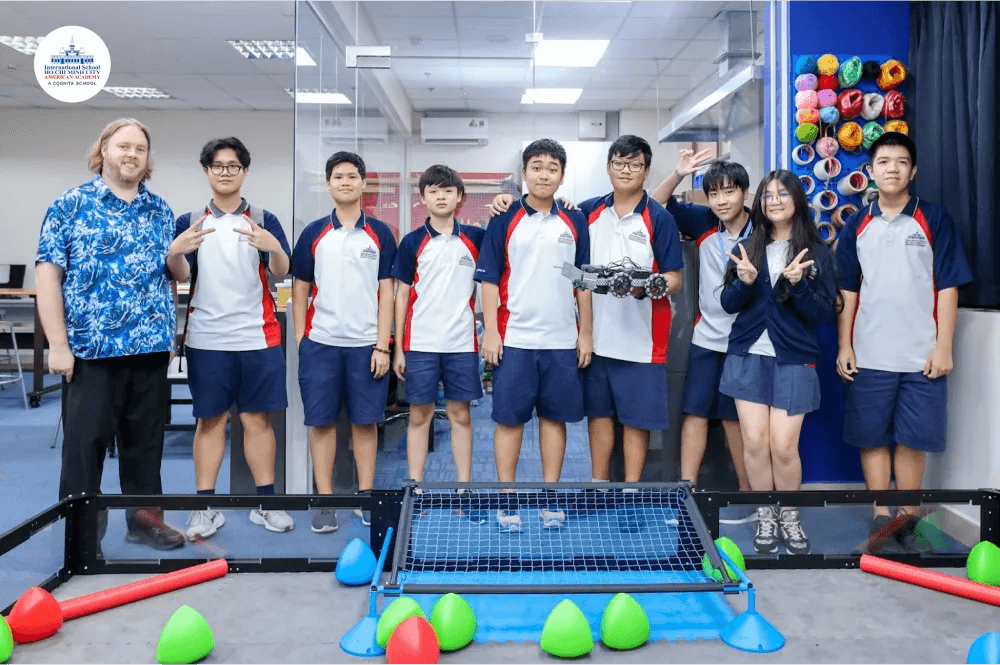
At ISHCMC – American Academy, students can access comprehensive university and guidance programs to support their academic and personal growth. Through high quality programs such as the Advanced Placement (AP) courses, students are equipped with the skills and knowledge necessary for success in higher education.
Additionally, students have valuable opportunities to engage in university-level coursework and gauge their readiness for college. Here, students receive personalized support and guidance as they navigate their academic and leadership journeys.
8. Engage in Leadership Development Workshops
Participating in leadership development workshops offers high school students a structured platform to enhance their interpersonal skills, problem-solving abilities, and emotional intelligence.
The workshop series can cover various topics, including personal skills, group skills, cultural diversity, character attributes, and planning. Through interactive sessions, students learn to relate these skills to real-life situations, gaining confidence in their ability to lead diverse groups and navigate changing environments.
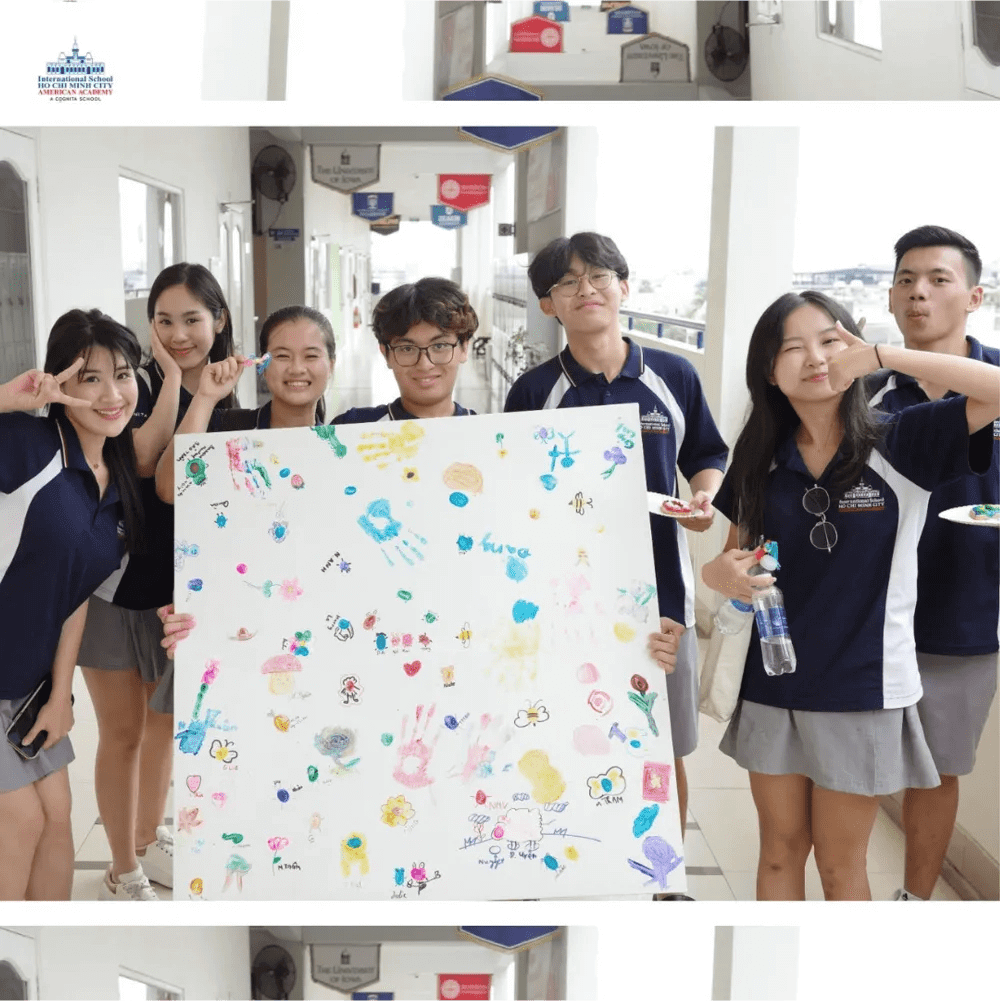
At ISHCMC—American Academy, students can explore opportunities for leadership development through workshops and events listed on the school’s calendar.
The ISHCMC – American Academy workshop and event calendar allows high school students to engage in leadership development activities and gain insights into various aspects of school life. From well-being seminars to Q&A sessions with the Head of School and Admissions, students can participate in events designed to support their academic, personal, and leadership growth.
9. Apply Leadership Skills in Real-World Scenarios
Utilizing their leadership skills for high school students in practical situations enables them to gain real-world experience, refine their decision-making abilities, and develop resilience in navigating challenges. This empowers them to impact their own lives and the lives of others positively.
Through the acquisition of core information, the development of creative thinking, the embrace of teamwork, and the mastery of basic literacies, students pursue the critical abilities required for effective leadership in an unpredictable world.
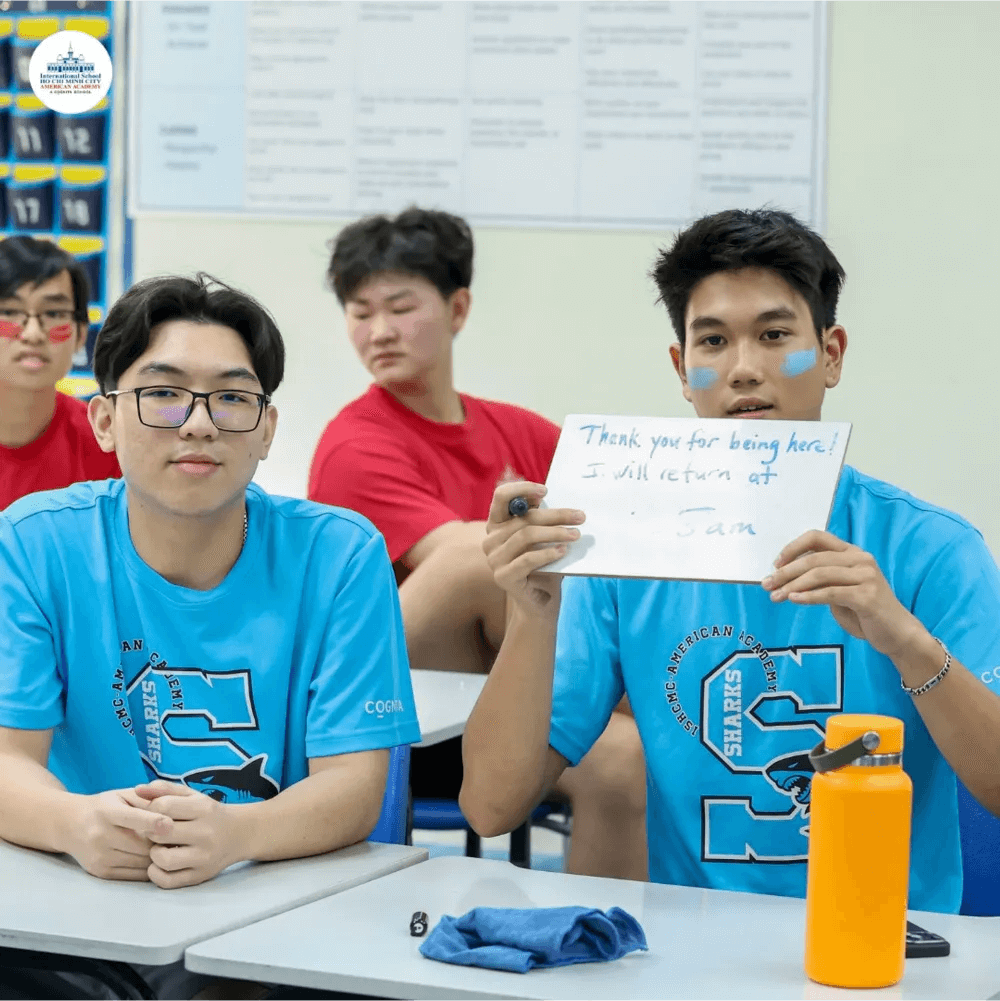
The transformational leadership theory underscores the importance of learning and evolving as leaders, emphasizing the potential for personal and societal transformation through acquiring and applying leadership skills for high school students.
Proactively engaging in real-world scenarios allows students to test and refine their leadership abilities, equipping them with the confidence and competence to navigate diverse challenges and opportunities.
The GATE program at ISHCMC—American Academy nurtures exceptional students’ unique gifts and talents, challenging and empowering them to create a positive impact.
Through small group settings, expert access, competitions, and community service projects, students gain confidence, critical thinking skills, collaboration abilities, and a strong sense of purpose, empowering them to pursue their passions and make a lasting difference.
Let Your Child Develop Leadership Skills with ISHCMC—American Academy
At ISHCMC—American Academy, students can develop essential soft skills necessary for leadership roles through various opportunities such as volunteer programs, employment, mentorship, and workshops.
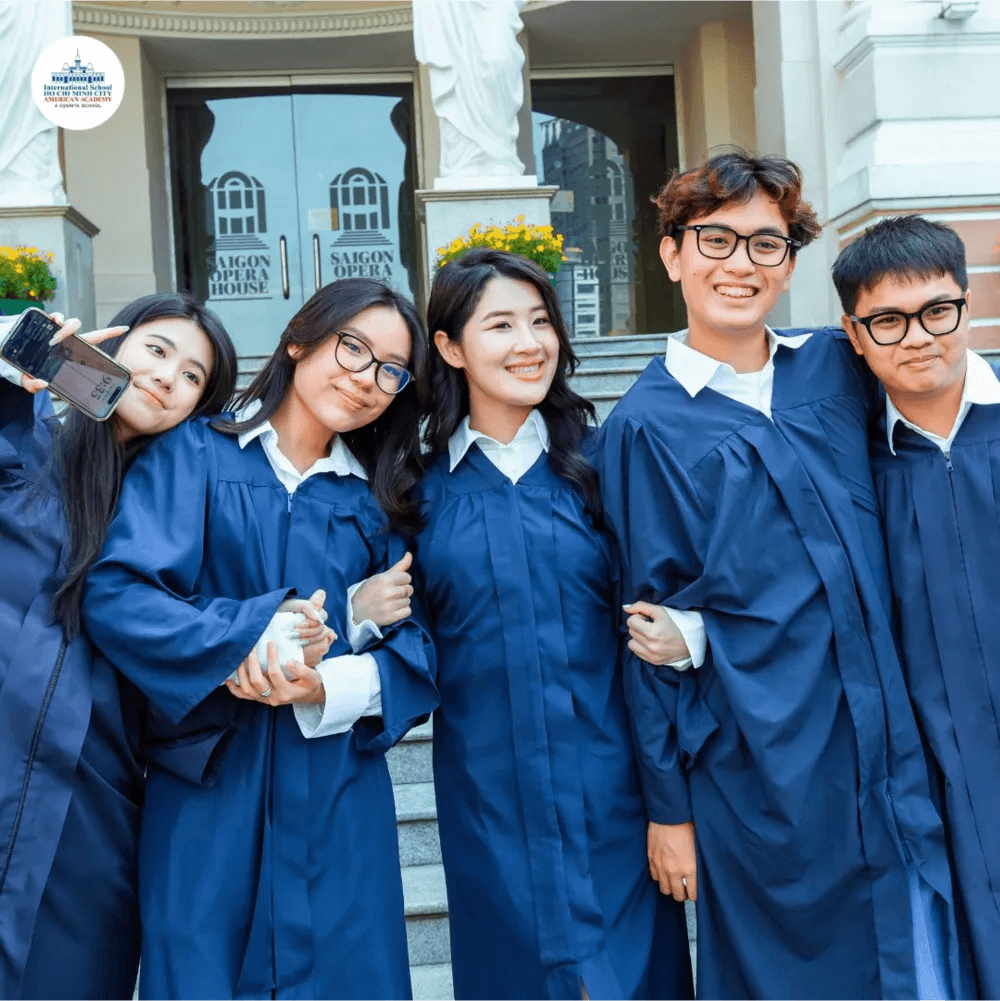
At AAVN School-American Academy, we are dedicated to providing a holistic education emphasizing leadership skills for high school students. Our American curriculum focuses on interactive learning, critical thinking, and character-building, ensuring students have the tools to thrive in an increasingly complex world. We offer a supportive environment where students can nurture their leadership potential.
Learn more about ISHCMC – American Academy and prepare your children to become future leaders!
References:
- Dogara, G., Bin Saud, M. S., Bin Kamin, Y., Bin Abd Hamid, M. Z., & Bin Nordin, M. S. (2019). Developing soft skills through project-based learning in technical and vocational institutions. International Journal of Recent Technology and Engineering, 8(3). https://doi.org/10.35940/ijrte.A9803.098319
- Dogara, G., Saud, M. S. Bin, Kamin, Y. Bin, & Nordin, M. S. Bin. (2020). Project-based earning conceptual framework for integrating soft skills among students of technical colleges. IEEE Access, 8. https://doi.org/10.1109/ACCESS.2020.2992092

